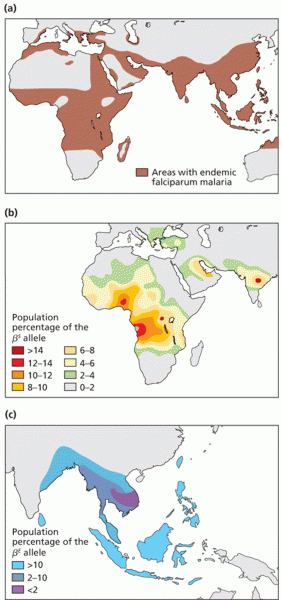Answer to Question 1
In 2013, malaria is estimated to have caused 1,159,500 deaths (See Table 17-1). Of all the infectious diseases present in the tropics, malaria is by far the most serious, accounting for an estimated 300500 million cases each year and more than a million deaths. Public health attempts to control malaria have been aimed at eradicating the Anopheles mosquito with the use of insecticides. Malaria was once prevalent in the southern United States (including Philadelphia), but an aggressive campaign to eliminate Anopheles mosquitoes and identify and treat all human cases of malaria in the 1950s led to the complete eradication of the disease there. Unfortunately, in the tropics, the mosquitoes have developed resistance to all of the pesticides employed and eradication has remained an elusive goal. DDT is still used in some developing countries to spray the walls of huts and houses, but its use in this manner is highly controversial because of the pesticide's well-known harmful environmental and health impacts. However, the spraying has proven to be highly effective. Resuming their use of DDT after several years with another pesticide, South Africa and Zambia were able to dramatically reduce their malaria caseloads. In 2002, molecular biologists successfully sequenced the genomes of the Anopheles mosquito and the most lethal malaria parasite, P. falciparium. Armed with this information, researchers are now able to target potential weak points in both organisms in the search for new vaccines and drugs. One highly promising effort funded by WHO's Tropical Disease Research program found that children provided with insecticide-treated nets over their beds experienced a substantial reduction in mortality from all causes. Elsewhere, WHO has documented increases in the incidence of malaria in association with land-use changes such as deforestation, irrigation, and the creation of dams. Research continues on the development of new, more effective antimalarial drugs and on the development of an effective vaccine. Recently, WHO initiated the Roll
Back Malaria' campaign, designed not to eradicate the disease but to reduce the malaria-caused mortality by half by 2010 and then to halve mortality again by 2015 . The emphasis of this program is on getting research findings into policy and practice.
Answer to Question 2
In 1900 Congress passed the Lacey Act, forbidding interstate commerce in illegally killed wildlife, making it more difficult for hunters to sell their kills. Since then, numerous wildlife refuges have been established to protect the birds' breeding habitats. Under the act, the U.S. Fish and Wildlife Service (FWS) can bring federal charges against anyone violating a number of wildlife laws.







